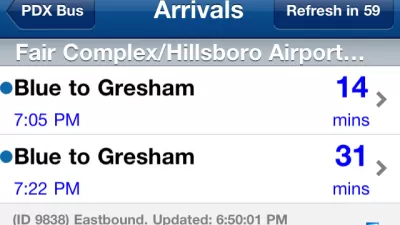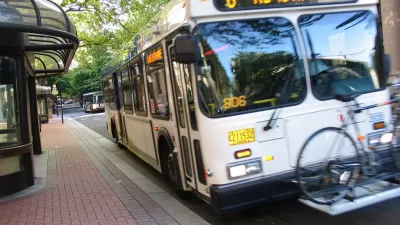New York and Washington D.C. are among the U.S. cities looking to revamp the payment systems for their trains and buses over the next several years. Many will ditch paper and plastic farecards in favor of credit cards and smartphones.

D.C.'s Metro system announced this week that it will begin a pilot program to test "a new electronic fare payment system at rail stations, on buses and at its parking garages," with the goal of transitioning the entire system by 2019, reports Mark Berman. Washington joins New York, Philadelphia, and Chicago in the quest to replace farecards, and even tokens, with "next-generation" fare systems.
As Will Oremus notes in Slate, the transition will allow transit systems to ditch card-vending machines and speed up the boarding process. "On the other hand," adds Oremus, "opportunistic thieves might salivate at the prospect of hordes of commuters having to wave their credit cards and smartphones around every time they want to ride a train or hop a bus."
FULL STORY: Washington, New York looking to a future without farecards

Alabama: Trump Terminates Settlements for Black Communities Harmed By Raw Sewage
Trump deemed the landmark civil rights agreement “illegal DEI and environmental justice policy.”

Planetizen Federal Action Tracker
A weekly monitor of how Trump’s orders and actions are impacting planners and planning in America.

The 120 Year Old Tiny Home Villages That Sheltered San Francisco’s Earthquake Refugees
More than a century ago, San Francisco mobilized to house thousands of residents displaced by the 1906 earthquake. Could their strategy offer a model for the present?

LA’s Tree Emergency Goes Beyond Vandalism
After a vandal destroyed dozens of downtown LA trees, Mayor Karen Bass vowed to replace them. Days later, she slashed the city’s tree budget.

Sacramento Leads Nation With Bus-Mounted Bike Lane Enforcement Cameras
The city is the first to use its bus-mounted traffic enforcement system to cite drivers who park or drive in bike lanes.

Seattle Voters Approve Social Housing Referendum
Voters approved a corporate tax to fund the city’s housing authority despite an opposition campaign funded by Amazon and Microsoft.
Urban Design for Planners 1: Software Tools
This six-course series explores essential urban design concepts using open source software and equips planners with the tools they need to participate fully in the urban design process.
Planning for Universal Design
Learn the tools for implementing Universal Design in planning regulations.
Ada County Highway District
Clanton & Associates, Inc.
Jessamine County Fiscal Court
Institute for Housing and Urban Development Studies (IHS)
City of Grandview
Harvard GSD Executive Education
Toledo-Lucas County Plan Commissions
Salt Lake City
NYU Wagner Graduate School of Public Service





























